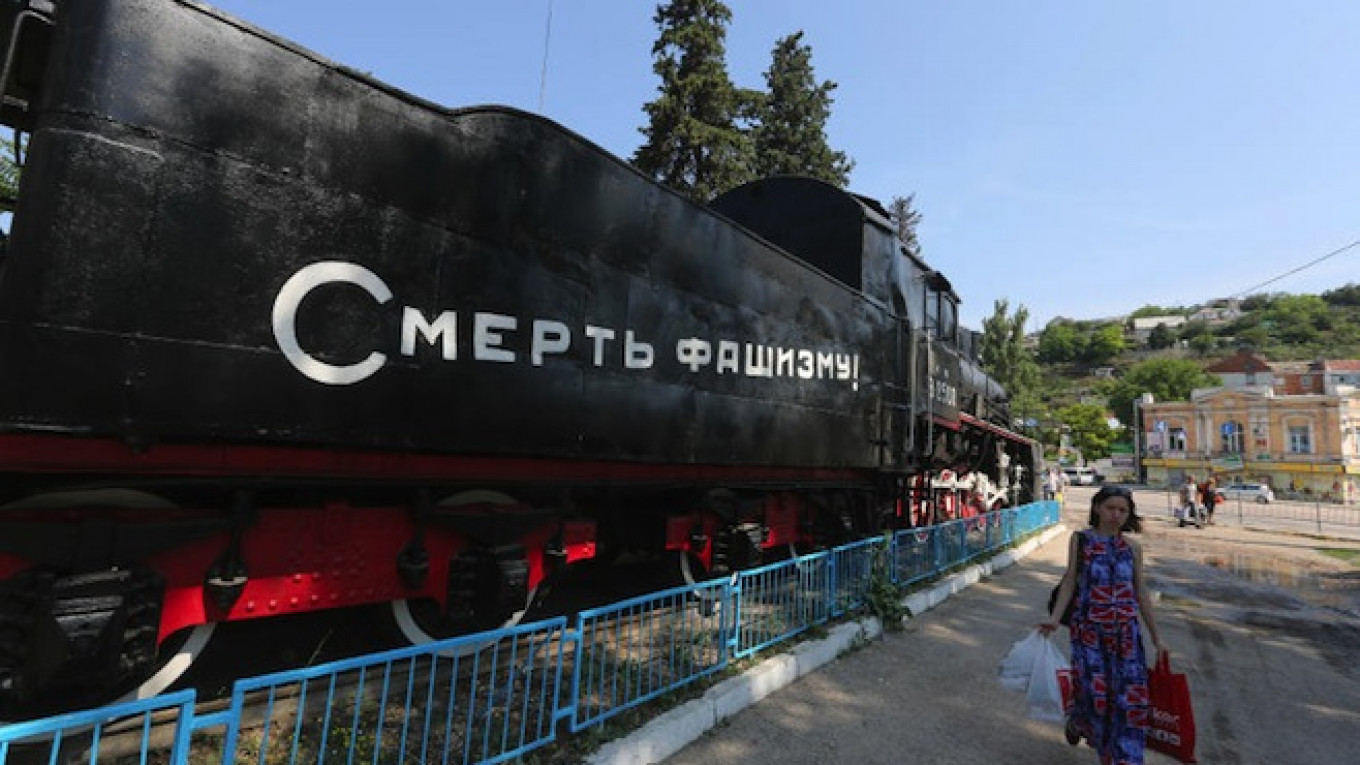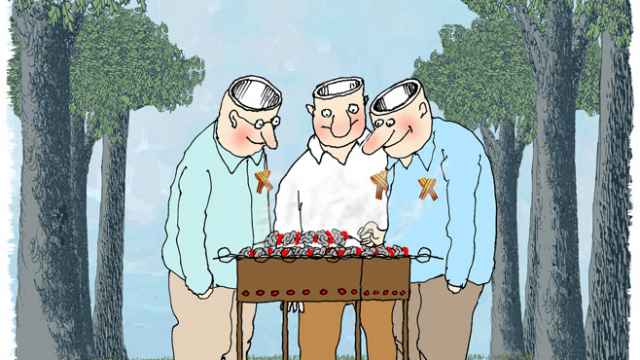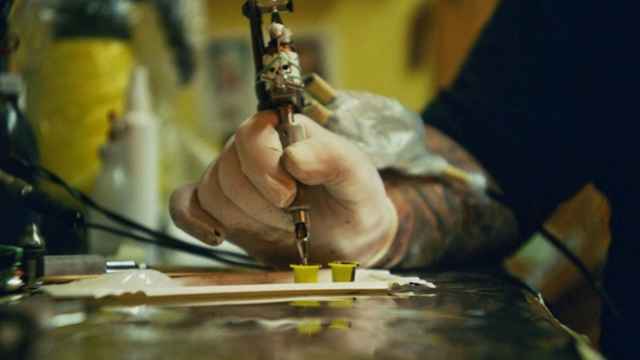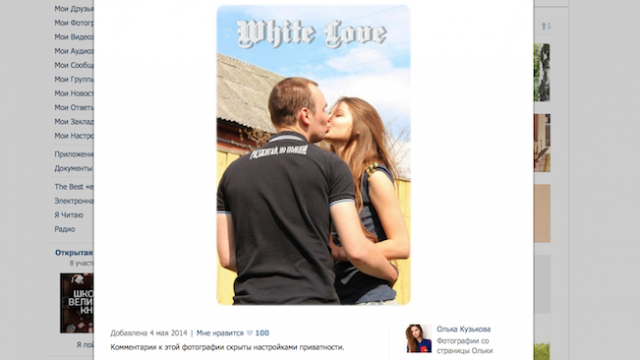A court in southern Russia has fined a local activist 1,500 rubles ($23) for online publications of caricatures mocking fascism and photographs of a Soviet Victory Day parade — images the court ruled illegal because they contained Nazi symbols, news reports said Tuesday.
The Sovetsky District Court in the Krasnodar region found Yulia Usach guilty on Tuesday of the “public display of fascist symbols,” her lawyer Alexander Popkov said, adding that the defense would appeal the “absurd ruling,” the Russian Legal Information Agency (RAPSI) reported Tuesday.
According to case materials, Usach posted three caricatures lampooning fascism on her social network page, and three historic photographs — including one of Moscow's 1945 Victory Day parade, when Soviet soldiers dragged and discarded flags of defeated Nazi forces on Red Square, the report said.
The case against Usach was first brought to court in July, when a judge dismissed the charges and sent the case back to investigators, regional news website Kavkazsky Uzel (Caucasus Knot) reported at that time.
“When the judge looked at the screenshots of my pages, which prosecutors included in case materials, he could not contain his smile,” Usach was quoted by Kavkazsky Uzel as saying at the time.
The caricatures were those by Kukryniksy, a well-known Soviet cartoonist group, which was created to combat fascism, Usach was quoted as saying.
Kukryniksy — which derived its name by combining the last names of its three artists, Mikhail Kupriyanov, Porfiry Krylov and Nikolai Sokolov — was widely recognized and published in the Soviet Union, and received international renown in the 1930s for their caricatures ridiculing Adolf Hitler and other Nazi leaders, and Italy's dictator Benito Mussolini.
The same Sovetsky District Court that had previously dismissed the case now finds Usach guilty.
The lengths to which Russian authorities will go to enforce the country's ban on the public display of Nazi images has drawn sneers and eye-rolling from critics.
In one of the best-known cases this year, Russian journalist Polina Petrusheva was detained, convicted and fined 1,000 rubles ($20 at the time) for posting a photograph on social network VKontakte of Nazi troops in her Smolensk neighborhood in western Russia during the World War II occupation.
Fears of prosecution also prompted a Moscow bookstore to remove Pulitzer Prize-winning graphic novel “Maus” from its shelves ahead of Victory Day in May this year, because the anti-fascist book about the Holocaust featured an image of a swastika on its cover.
Usach did not show up for her latest hearing due to illness, her lawyer was quoted as saying by independent Ekho Moskvy radio.
The activist complained this summer that the “psychological pressure from prosecutors” and her anxiety about the case left her suffering from high blood pressure, Kavkazsky Uzel reported.
“Because of constant fear, I have removed everything from my pages on social networks and don't go online anymore,” she was quoted as saying.
Contact the author at newsreporter@imedia.ru
A Message from The Moscow Times:
Dear readers,
We are facing unprecedented challenges. Russia's Prosecutor General's Office has designated The Moscow Times as an "undesirable" organization, criminalizing our work and putting our staff at risk of prosecution. This follows our earlier unjust labeling as a "foreign agent."
These actions are direct attempts to silence independent journalism in Russia. The authorities claim our work "discredits the decisions of the Russian leadership." We see things differently: we strive to provide accurate, unbiased reporting on Russia.
We, the journalists of The Moscow Times, refuse to be silenced. But to continue our work, we need your help.
Your support, no matter how small, makes a world of difference. If you can, please support us monthly starting from just $2. It's quick to set up, and every contribution makes a significant impact.
By supporting The Moscow Times, you're defending open, independent journalism in the face of repression. Thank you for standing with us.
Remind me later.






